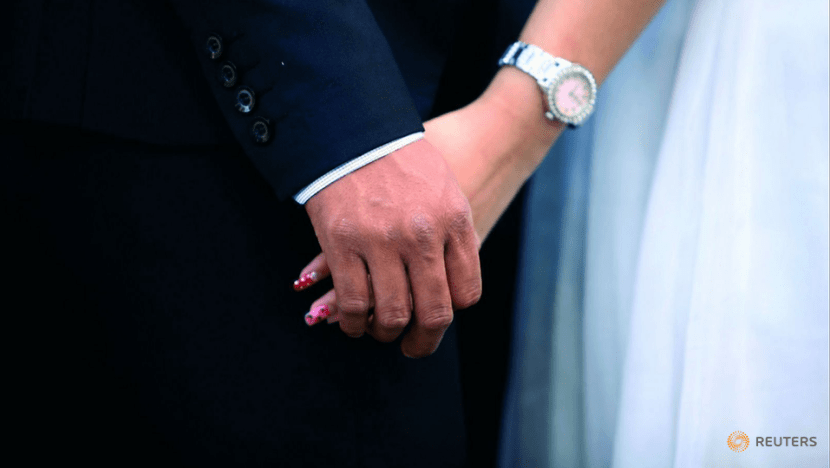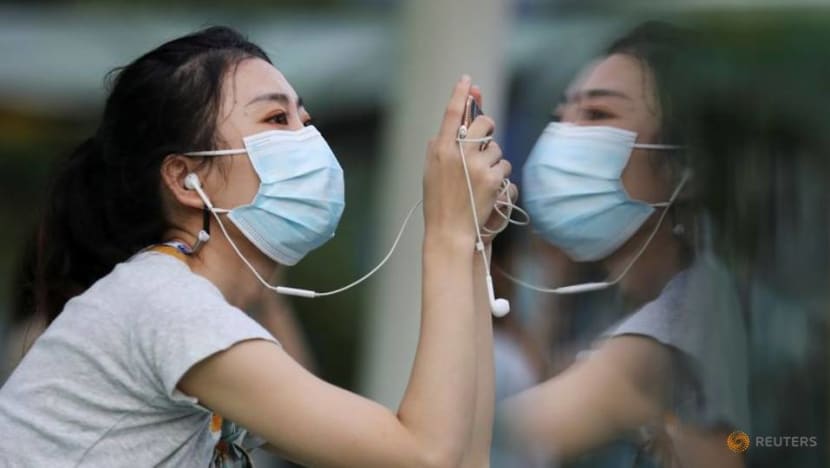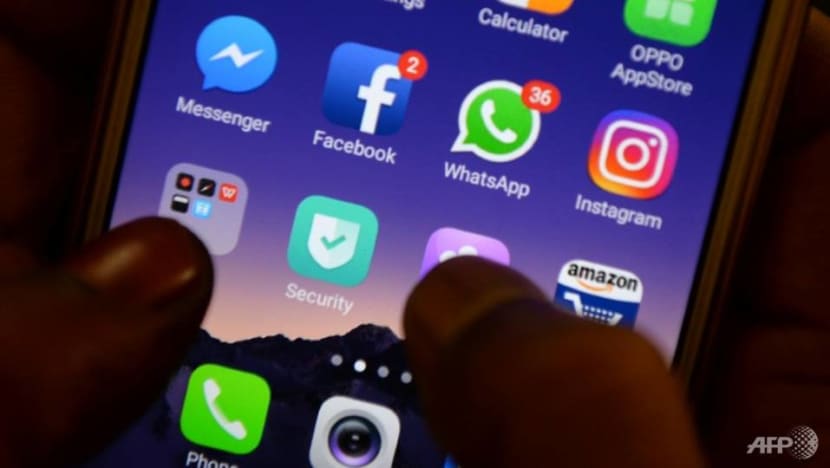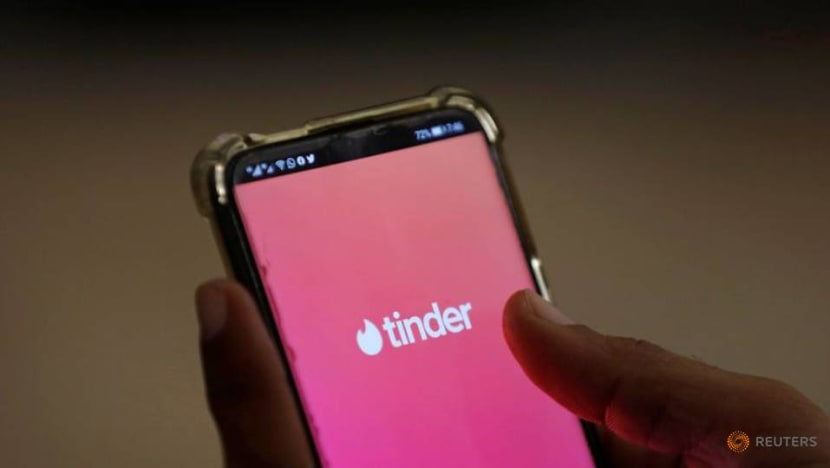commentary Commentary
Commentary: Rise in online dating during pandemic may see more serious relationships, marriages in next few years
COVID-19 has enhanced our need for social connection while making it more difficult to do so. Online dating and the formation of romantic relationships are changing in significant ways during this pandemic, say Michelle Tan Li Min and Jean Liu.

A couple holding hands. (File photo: Reuters)
SINGAPORE: Can you find love during a pandemic?
In March, as countries went into lockdown, one New York resident asked his neighbour out by sending a drone message.
The pair then “dated” through video calls, before meeting in person after one of them dressed in an inflatable plastic bubble.
While this story may amuse us, it shows us how far people would go to pursue a romantic relationship. And, at the heart of it, it highlights how social connections are important to us all.
READ: Commentary: COVID-19 has killed some friendships - but that’s okay
READ: Commentary: We know the IKEA catalogue was much more to us than pages of furniture
KEEPING LOVE DURING A PANDEMIC
Earlier this year, when the Singapore Government implemented circuit breaker measures, residents were asked to stay home as much as possible.
Some everyday activities were deemed essential, while others were judged “non-essential”. And within this latter category, amid a raging pandemic threatening to spread, social activities with anyone outside the household – including romantic partners – were classified as non-essential.
Although the situation called for these restrictions, this is not the natural order of things. Even the introverts among us seek out social connections – particularly in times of crises.
Worse, romantic partners who did not live with each other found themselves on opposite ends of safe distancing requirements. Couples in long-distance relationships were separated by border closures and flight restrictions.

Faced with distances, romantic relationships during COVID-19 were largely maintained through technology – using FaceTime calls, WhatsApp videos, or meals over Zoom.
FINDING LOVE DURING A PANDEMIC
But people who wanted new relationships found love too. In 2020, romance was often found through technology.
During the circuit breaker, the dating app Paktor saw a surge in app usage. More singles joined, and Paktor saw a 10 per cent increase in new users. Singapore users also spent 10 times longer on the app than they did before the pandemic. Although usage has now decreased, it remains 70 per cent higher than it was pre-pandemic.
With potentially more Singaporeans turning to dating apps, it’s timely to consider how COVID-19 may be changing the way that people fall in love.
READ: Commentary: Why breaking up in the Facebook era is hard to do
READ: Commentary: Phase 3 will bring us much-needed closure to a difficult year
MORE TIME SPENT CHATTING BEFORE MEETING
First, if more Singaporeans are using dating apps, we should see a larger pool of potential partners. In theory, this could mean a higher chance of finding a match - perhaps among disparate groups who might not have met otherwise.
Next, once a match is made, users can then message each other through the app. Since COVID-19 has made it harder to meet in person, users would likely spend more time at this messaging stage.
Can more messaging promote love? Perhaps, since messages are devoid of non-verbal cues like eye-contact. This may encourage users to compensate by sharing more about their lives.

Psychologists have found that when people share about themselves, romance is more likely to occur. Whether people talk about their favourite laksa haunt or reveal more personal information, this form of disclosure can lead to a spark.
A famous study by Arthur Aron found that if two strangers discuss 36 questions that increasingly become more personal, the self disclosure leads to mutual vulnerability that fosters closeness.
In other words, if COVID-19 promotes disclosure on dating apps, we might see more serious relationships blossom after this year. This may be the catalyst that brings about change against a growing tide of casual hookups - particularly on dating apps.
READ: Commentary: The things I no longer do for my significant other
READ: Commentary: What’s wrong with being a single woman?
NORMALISATION OF VIDEO DATES
On the other hand, psychologists have also warned that messages have their limits.
Through messages alone, it’s hard to tell whether you’ll “click” with someone once you actually meet.
Given ongoing restrictions for in-person meetings, dating apps have innovated to help users connect with each another.
Before 2020, the app Bumble was the only dating app with a video call function. The pandemic has pushed competitors like Tinder to develop similar features. Last month, Tinder launched the “Face to Face” function for users to video chat,

Closer to home, dating agencies such as Kopi Date and LunchActually now offer users “virtual dates”. On these dates, customers have meals with their dates through video-conferencing platforms such as Zoom.
Video dates may be a boon for dating apps. For users who are shy, video dates offer a less-intimidating format to meet a new person. It also reduces catfishing – when a user with a deceptive profile looks vastly different in person.
Finally, video dates can help transition an online match into an offline relationship. Dating becomes a step-like process: From a swipe, to texting, to meeting through video-calls, before two people finally meet in person.
This provides many low-stake opportunities for users to figure out whether the match can work, without having to gear up for an evening out.
As a result, COVID-19 may have lowered the entry barriers to dating and made it more likely for matches to translate to actual relationships.
READ: Commentary: When did LinkedIn become a dating site? Two rules to navigate this new challenge
READ: Commentary: We cannot allow COVID-19 to disrupt our relationships too
WHAT NEXT?
Since Singapore lifted the circuit breaker, couples have been able to meet in person and usage of dating apps has decreased. Still, with safe distancing rules in place, online dating remains an attractive option.
While online dating was already popular before the pandemic, COVID-19 normalised its use, encouraged people to forge deeper relationships than a casual hookup, and promoted video dates through the platforms. Each of these trends encourage serious relationships, and may lead to marriages in years to come.
In short, online dating to find your long-term partner may have gotten an upgrade during COVID-19.
Jean Liu is an assistant professor of psychology at Yale-NUS College. Her research examines the impact of technology, and she teaches a module on online dating. Michelle Tan is a final year psychology student at Yale-NUS College who previously enrolled in the module.















